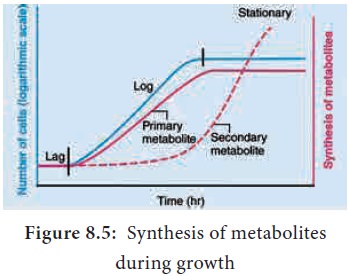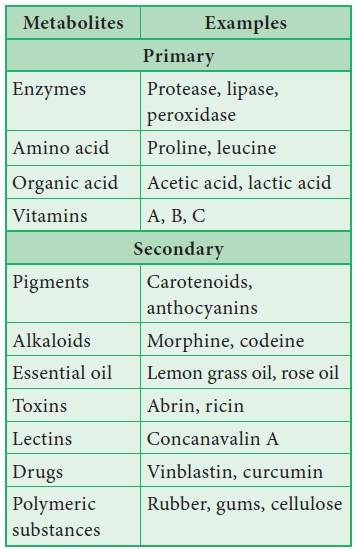Chapter: 11th Botany : Chapter 8 : Biomolecules
Primary and Secondary Metabolites - Biomolecules
Primary and Secondary Metabolites
Most plants, fungi and other microbes synthesizes a
number of organic compounds. These components are called as metabolites which are intermediates and
products of metabolism. The term metabolite is usually restricted to small
molecules. It can be catergorized into two types namely primary and secondary
metabolites based on their role in metabolic process (Figure 8.5).

Primary
metabolites are those that are required for the basic metabolic processes like photosynthesis,
respiration, protein and lipid metabolism of living organisms.
Secondary
metabolites does not show
any direct function in growth and development of organisms.

Organic Molecules
Organic molecules may be small and simple. These
simple molecules assemble and form large and complex molecules called macromolecules . These include four
main classes – carbohydrates, lipids, proteins and nucleic acids. All
macromolecules except lipids are formed by the process of polymerisation, a
process in which repeating subunits termed monomers are bound into chains of
different lengths. These chains of monomers are called polymers.
Related Topics